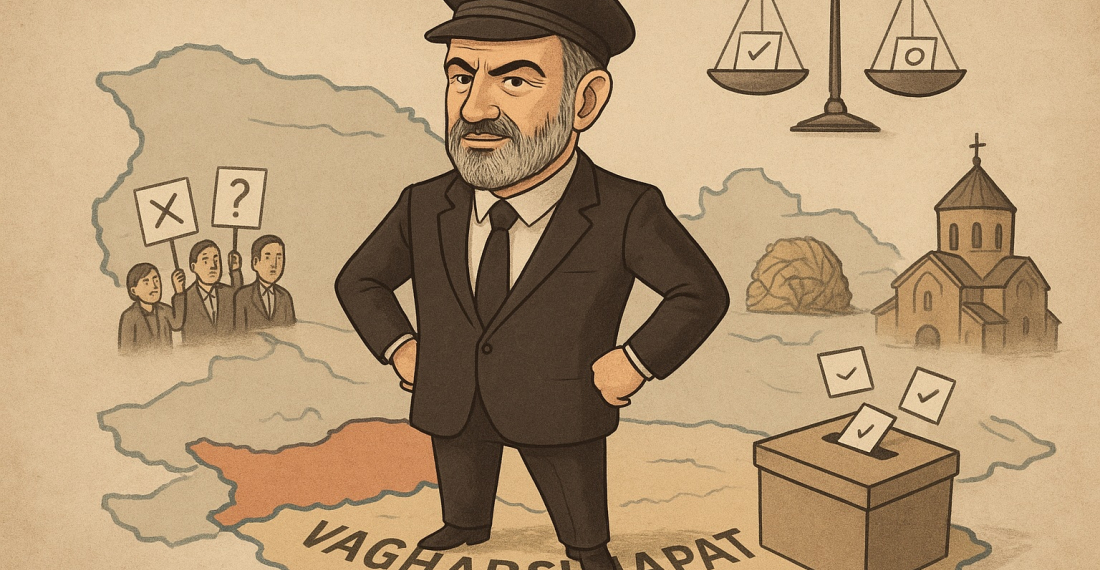Residents of Vagharshapat, better known to many as Etchmiadzin, went to polls on Sunday to elect a 33-member city council. The vote was particularly important given that it could highlight the political mood in the country ahead of next year’s parliamentary elections. Armenian Prime Minister Nikol Pashinyan’s popularity has been in decline for several years now. He is only fortunate that the opposition has hardly fared better even when taken as a collective whole.
The first results, posted from the small village of Lernamerdz, reported a landslide victory for Pashinyan with 160 votes. The nearest rival, the Victory Alliance received only 11. It was ironic. The last time I visited Lernamerdz, population around 400, was to work on a story on what had become known as the last socialist village in Armenia, complete with a large shiny bust of Lenin in the centre. Many of its residents still lament the loss of the former Soviet Union and await its return.
Perhaps Pashinyan’s signature peaked hat, reminiscent of the Russian revolutionary, had worked wonders after all. In the regions anyway.
That has not always been the case. In late March, local elections held in Armenia’s second largest city of Gyumri and the small Parakar community just outside Yerevan had already cast doubts on an assured Pashinyan win in next year’s parliamentary elections. It was then that a united opposition prevented the government from winning those municipalities. Ever since, it was expected that Pashinyan would face a similar situation in Vagharshapat.
With the final results from the 16 November vote now known, Pashinyan can breathe more easily. Argishti Mekhakyan scored a clear victory for Civil Contract with 48.5 percent. Second was the opposition Victory Alliance that includes the pro-Kocharyan opposition Armenian Revolutionary Federation – Dashnaktsutyun (ARF-D) with 31.9 percent. Naturally, there were accusations of electoral code violations but not sufficiently enough to meaningfully influence the result.
The following day, however, the picture was less clear. Opposition politicians and critical media noted that after the previous pro-government mayor resigned in May, Vagharshapat was then enlarged to include 16 other villages that had not been part of the community before. Yesterday, Edmon Marukyan, a former political ally of Pashinyan now in opposition, alleged it was this gerrymandering that secured Pashinyan's victory. Azatutyun Radio reported that half of Civil Contract’s votes came from there.
This is of course not illegal and often occurs in western democracies too. Marukyan also added that this tactic can only work in majoritarian type scenarios, something that the Vagharshapat local elections effectively were. The same will not be true in next year’s national parliamentary vote.
It did, however, highlight how ill-prepared the opposition is for next year’s vote. Pashinyan’s well-honed use of populism stemming from decades on the hustings, coupled with international support and the near total control of administrative resources, could well prove too much for the opposition to counter. In the absence of any clear strategy, Pashinyan continues to outsmart his opponents at almost every turn. Vagharshapat proved that once again.
True, there are still more than six months left until parliamentary elections but any developments still look most likely to favour the incumbent, especially when it comes to further progress on normalising relations between Armenia and Azerbaijan ahead of a possible peace deal. The European Political Community (EPC) summit in Yerevan scheduled for just as the official pre-election campaign period kicks off next May will also greatly benefit the premiere.







